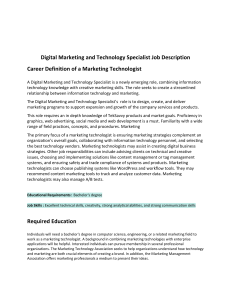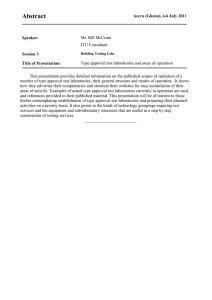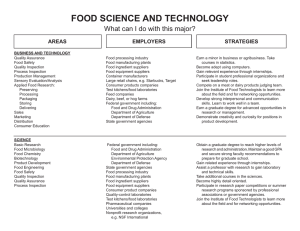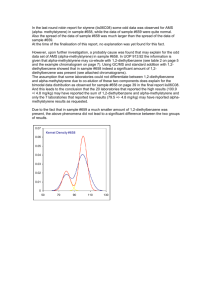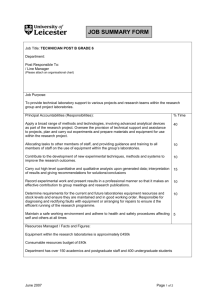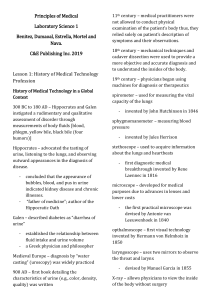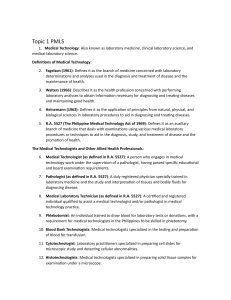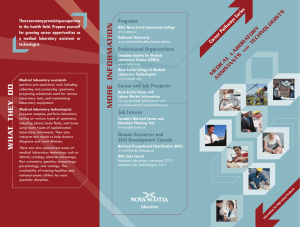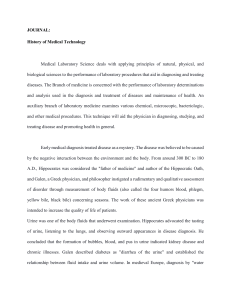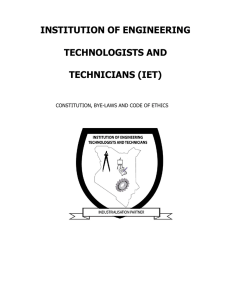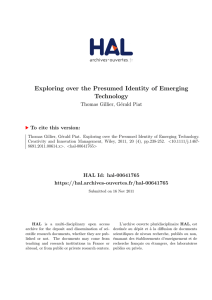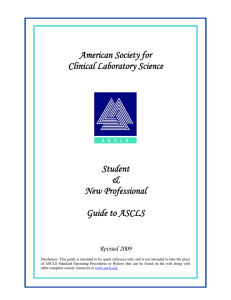Medical Technologist
advertisement
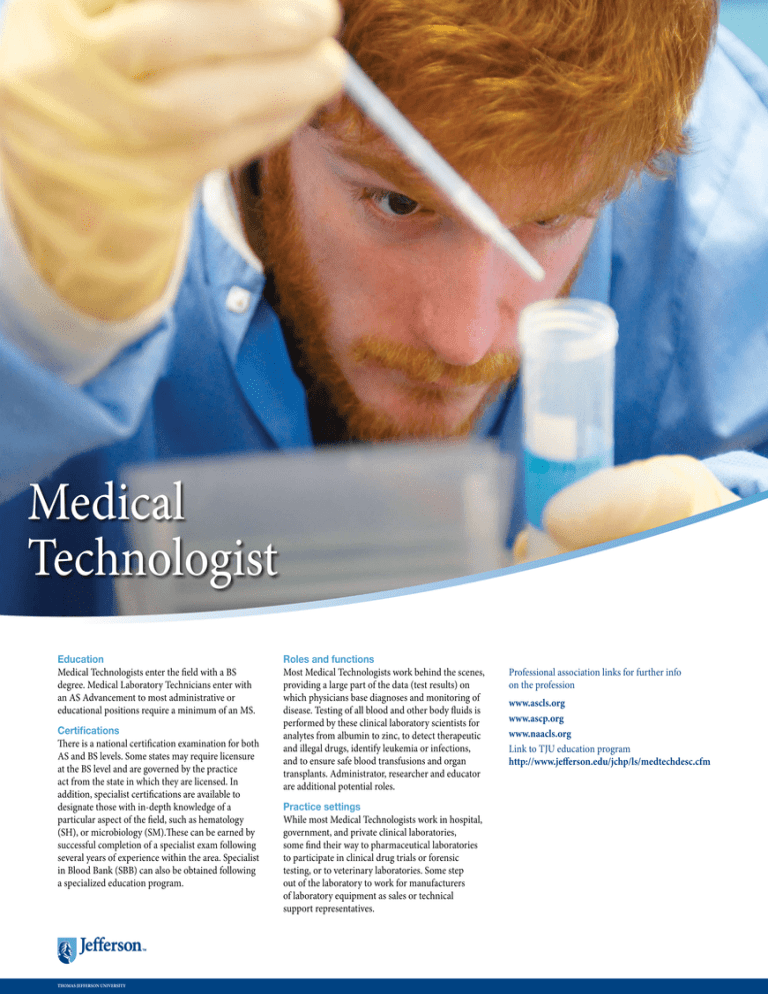
Medical Technologist Education Medical Technologists enter the field with a BS degree. Medical Laboratory Technicians enter with an AS Advancement to most administrative or educational positions require a minimum of an MS. Certifications There is a national certification examination for both AS and BS levels. Some states may require licensure at the BS level and are governed by the practice act from the state in which they are licensed. In addition, specialist certifications are available to designate those with in-depth knowledge of a particular aspect of the field, such as hematology (SH), or microbiology (SM).These can be earned by successful completion of a specialist exam following several years of experience within the area. Specialist in Blood Bank (SBB) can also be obtained following a specialized education program. THOMAS JEFFERSON UNIVERSITY Roles and functions Most Medical Technologists work behind the scenes, providing a large part of the data (test results) on which physicians base diagnoses and monitoring of disease. Testing of all blood and other body fluids is performed by these clinical laboratory scientists for analytes from albumin to zinc, to detect therapeutic and illegal drugs, identify leukemia or infections, and to ensure safe blood transfusions and organ transplants. Administrator, researcher and educator are additional potential roles. Practice settings While most Medical Technologists work in hospital, government, and private clinical laboratories, some find their way to pharmaceutical laboratories to participate in clinical drug trials or forensic testing, or to veterinary laboratories. Some step out of the laboratory to work for manufacturers of laboratory equipment as sales or technical support representatives. Professional association links for further info on the profession www.ascls.org www.ascp.org www.naacls.org Link to TJU education program http://www.jefferson.edu/jchp/ls/medtechdesc.cfm
